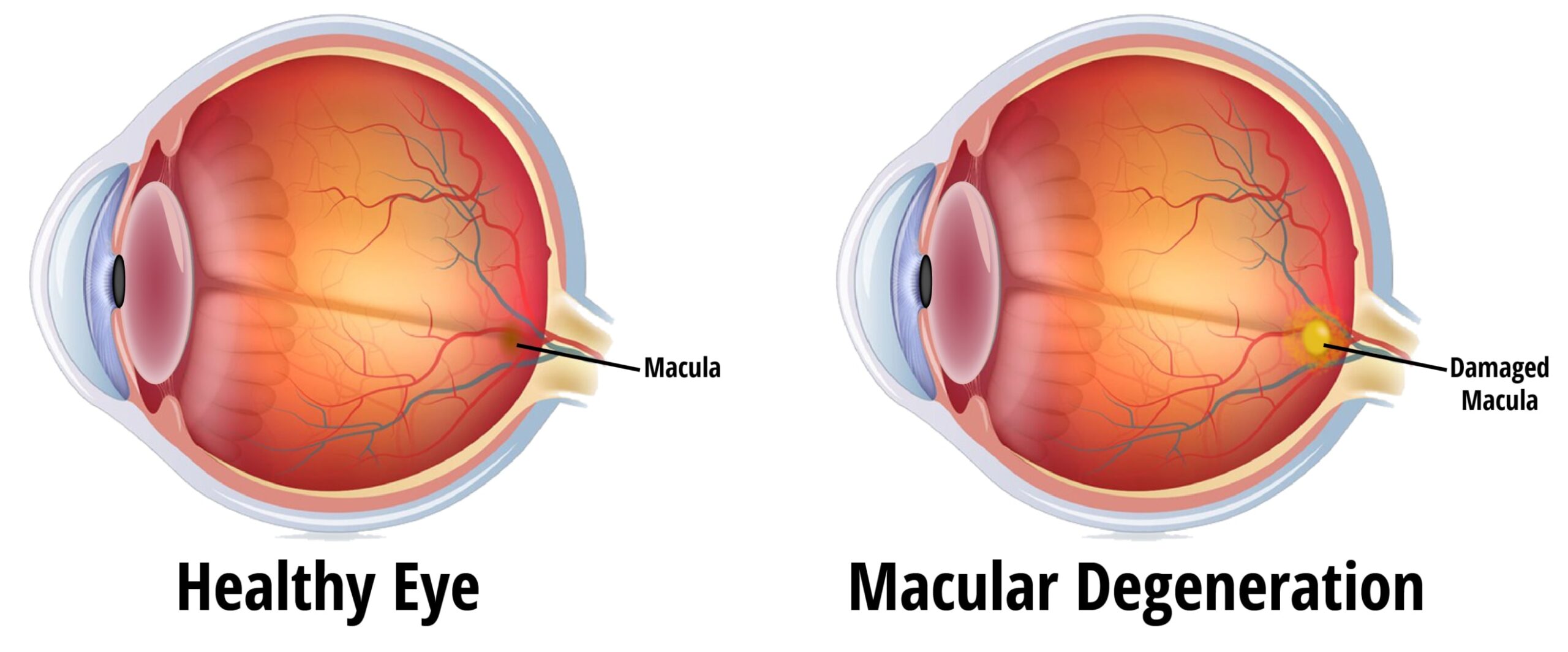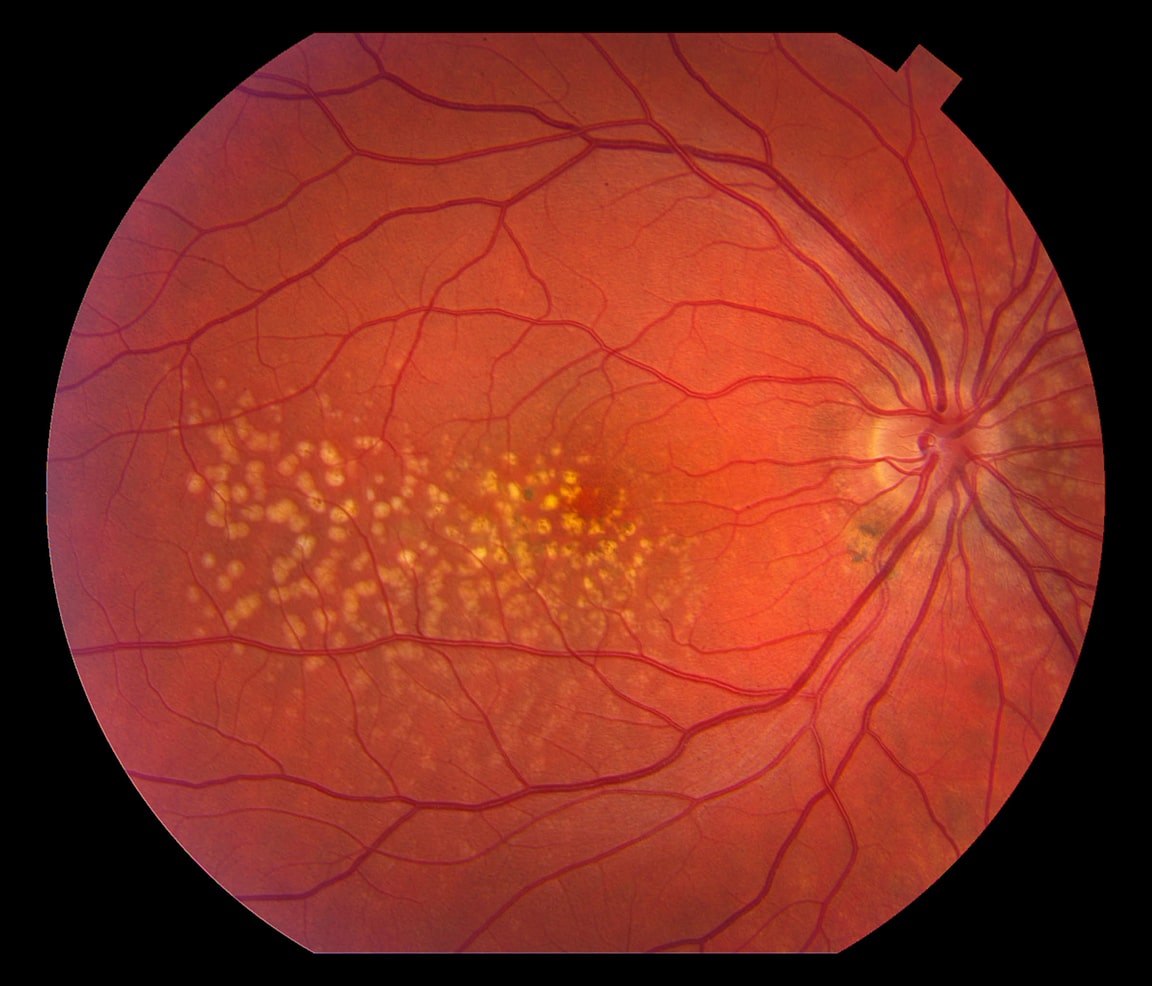Macular degeneration affects the central portion of the retina, which is responsible for sharp, central vision. This condition is a leading cause of vision loss in people over 50. It can make it difficult to see fine details and perform tasks like reading or driving.
Macular degeneration affects the central portion of the retina, which is responsible for sharp vision. This condition is a leading cause of vision loss in people over 50. Consequently, it can make it difficult to see fine details and perform tasks like reading or driving.
How is it Diagnosed?
A comprehensive eye exam is essential for identifying this condition. First, the doctor examines the retina using an ophthalmoscope to detect abnormalities. Additionally, other tests, such as Amsler grid testing and visual acuity assessments, help confirm the condition. Furthermore, optical coherence tomography (OCT) may provide a detailed view of the retina. If necessary, the doctor refers the patient to a retinal specialist for further evaluation.

Types of the Condition
This eye disorder exists in two main forms: wet and dry.
- Dry type is the more common, caused by retinal tissue thinning.
- Wet type results from abnormal blood vessel growth under the retina. As a result, these vessels may leak fluid or blood, leading to retinal damage.
Available Treatments
While there is no cure, treatments can slow its progression and help preserve vision. Therefore, early intervention is crucial.
Managing the Dry Type
Dietary supplements, including lutein, zeaxanthin, and omega-3 fatty acids, may help manage the condition. Moreover, doctors may also advise reducing activities that strain the eyes, such as prolonged reading or extended computer use.
Approaches for the Wet Type
Treatment often includes medications injected directly into the eye to prevent abnormal blood vessels from growing and leaking. In some cases, laser surgery may be necessary to seal or destroy these vessels. Consequently, working closely with a doctor ensures the best plan for maintaining vision.







